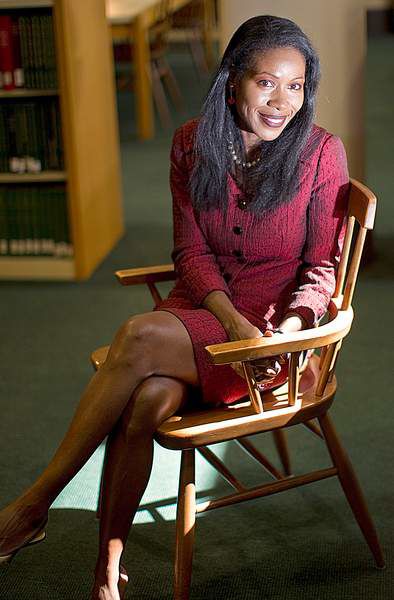Isabel Wilkerson dramatizes story of blacks who fled from the South
Published 4:00 am Sunday, November 6, 2011

- Author Isabel Wilkerson did much of her early research for “The Warmth of Other Suns” at the Newberry Library in Chicago, where she relaxes Sept. 30.
“The Warmth of Other Suns: The Epic Story of America’s Great Migration” by Isabel Wilkerson (Knopf Doubleday Publishing Group, 640 pgs., $16.95)
CHICAGO — Ida Mae Brandon Gladney, a sharecropper’s wife, fled Mississippi in fear for her life after a relative was falsely accused of turkey stealing, and landed in Chicago in 1937.
George Swanson Starling, a Florida citrus picker who was threatened with a lynching after trying to organize fellow pickers, ended up in Harlem in 1945.
Dr. Robert Joseph Pershing Foster headed west to Los Angeles from Monroe, La., in 1953, frustrated that he was not permitted in most operating rooms in the South, despite his success as an Army surgeon.
This trio of protagonists formed the foundation of Isabel Wilkerson’s extraordinary accomplishment, “The Warmth of Other Suns: The Epic Story of America’s Great Migration,” winner of the Chicago Tribune’s Heartland Prize for nonfiction. The book’s power resides not only in its intimate portraits, but also in its epic sweep, redolent of a great novel.
In a rare achievement, Wilkerson dramatized a long-overlooked chapter of American history, the story of 6 million African-Americans who fled the South and headed north after World War II, exchanging Jim Crow laws for an unknown world. “The migration was,” said Wilkerson, as we sat in the Newberry Library last fall just after the book’s publication, “one of the biggest underreported stories of the 20th century.”
“The Warmth of Other Suns” emerged from Wilkerson’s passion to correct history, but also reflected her deep attachment to it through her mother, who migrated to Washington, D.C., from Rome, Ga., and her father, a Tuskegee Airman, who left southern Virginia and headed to the nation’s capital, where they married and raised Isabel.
“If there hadn’t been a Great Migration,” Wilkerson recalled, “I wouldn’t have existed.”
The New York Times sent Wilkerson to Chicago as a national correspondent in 1987, and then, as bureau chief, she won the Pulitzer Prize in 1994 for feature writing. The entry consisted of her profile of a fourth-grader from Chicago’s South Side and two stories reporting on a Midwestern flood the year before. When she wasn’t traveling on stories, Wilkerson lived in River North, but spent most of her years in a small Victorian house in Oak Park. She eventually took a leave in 2000 to begin working on “The Warmth of Other Suns.”
The book’s title was drawn from Richard Wright’s explanation that he was seeking the warmth of other suns so he might bloom and live out his dreams. While the title is also evocative of Lorraine Hansberry’s “A Raisin in the Sun,” Wilkerson explains that if there was a literary inspiration to her book, it’s a novel like “The Grapes of Wrath,” the moving multicharacter journey of farmers headed west in search of a better life.
Among its other accolades, Wilkerson’s book won the 2010 National Book Critics Circle Award for nonfiction. (I serve on the board of directors and was involved with the selection process.) The Chicago Tribune’s Heartland Prizes are not regional awards, but rather they celebrate literature that comes from the metaphorical heart of the nation.
“The Warmth of Other Suns” places the Great Migration in the sweep of American history and was important in setting the civil rights movement into motion. As Wilkerson explained, “It was the first big step the servant class took without asking. It was affirmation of the power of an individual decision.”
Robert Foster, George Starling and Ida Mae Gladney did not live to see their stories on the page, and Wilkerson misses them. Gladney died in 2004, and although Wilkerson clearly loves all three of the central figures in her drama, she seems to have a special affection for Gladney. “Ida Mae never changed who she was and she was the happiest,” says Wilkerson, “and she lived the longest of all.”



